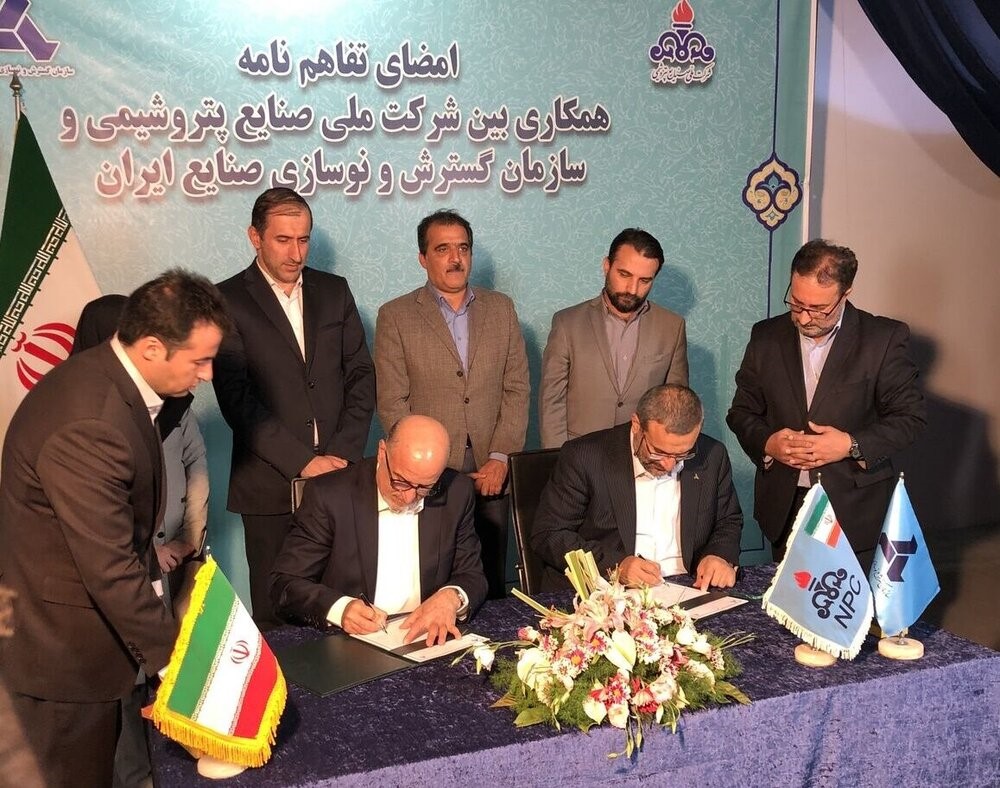NPC, IDRO ink cooperation memorandum
Iran’s Industrial Development and Revolution Organization (IDRO) signed a memorandum of understanding (MOU) with National Petrochemical Company (NPC) for supplying the equipment required in petrochemical industry’s downstream sector.

The MOU was signed by NPC’s Managing Director Behzad Mohammadi and IDRO Head Baqer Ali on the sidelines of Iran Plast 2019 exhibition in Tehran on Wednesday, Shana reported.
Speaking in the signing ceremony, Mohammadi pointed out that establishing a communication channel between petrochemical industry’s upstream producers and consumers of these products in the downstream sector was one of the main goals of Iran Plast exhibition.
Noting that about 6,000 firms are active in the downstream industries, he added: “These firms receive about 4 million tons of feedstock a year, and this has led to creating jobs for 4,000 people, indicating that in the petrochemical industry production and consumption are both of particular importance.”
The official further stated that the MOU signed between the two entities is aimed to strengthen and support major downstream industries such as the automotive industry.
“We need to be aware of the needs of the downstream industries and identify the polymer clusters that the industry needs and plan the petrochemical research and technology systems accordingly,” he said.
Iran’s 13th International Exhibition of Plastic, Rubber, Machinery and Equipment (IRAN PLAST 2019) kicked off at the Tehran International Permanent Fairground on September 25 and wrapped up on Wednesday.
Petrochemical industry is playing a crucial role in Iran’s economy. According to official data, petrochemical exports constitute the second largest hard currency earner in Iran after crude oil. Petrochemical exports already make up nearly 33 percent of the country’s non-oil exports.
According to the Director of NPC’s Projects Ali-Mohammad Bosaqzadeh, Iran’s annual petrochemical output, which is currently at 65 million tons, is planned to reach more than 100 million tons by the Iranian calendar year of 1400 (ends on March 2022) and to 130 million tons or nearly doubled) by 1404 (ends on March 2026).